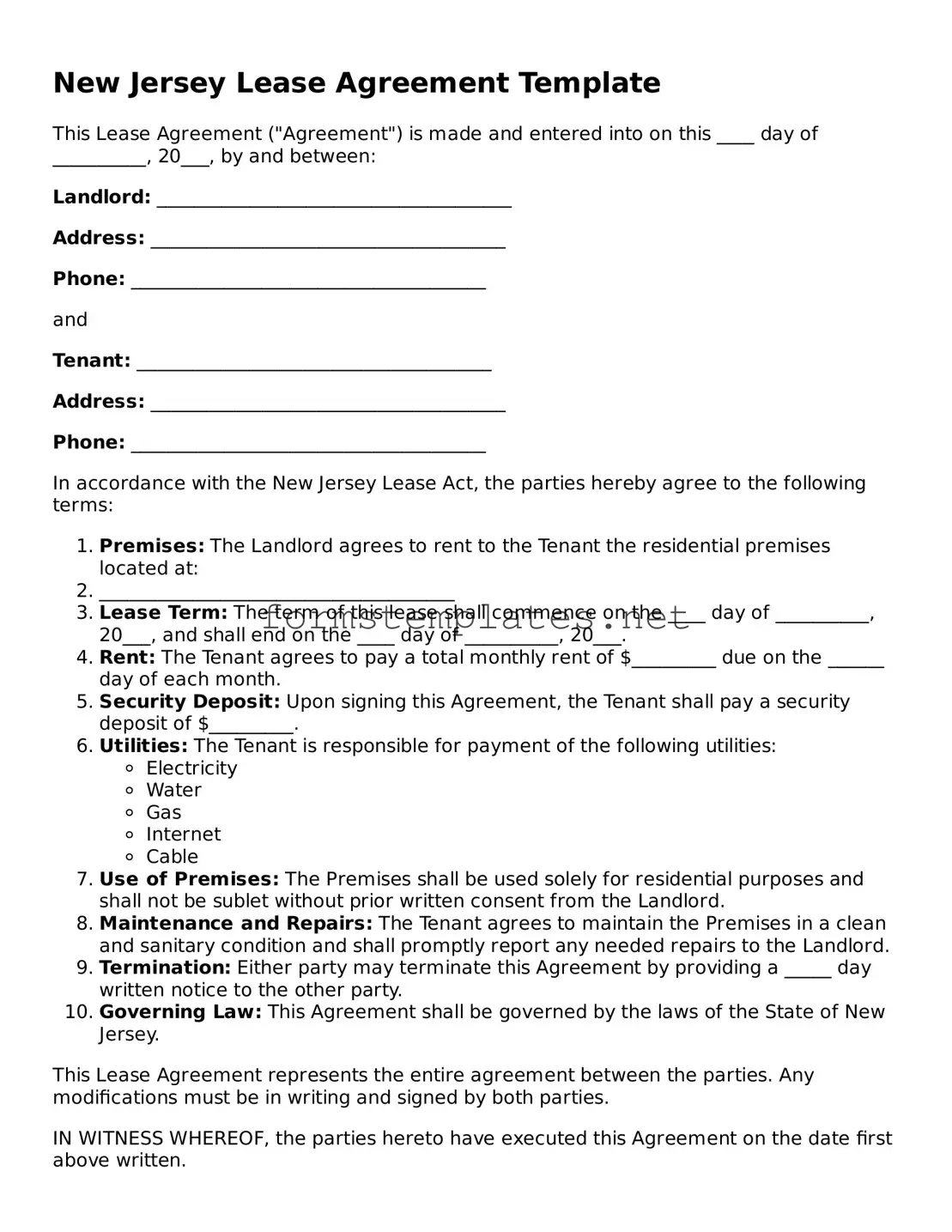Attorney-Approved New Jersey Lease Agreement Template
The New Jersey Lease Agreement form is a legally binding document that outlines the terms and conditions between a landlord and a tenant for renting residential or commercial property. This form serves as a crucial tool for both parties, ensuring that their rights and responsibilities are clearly defined. Understanding this agreement is essential for fostering a positive rental experience and preventing potential disputes.
Open Editor Now

Attorney-Approved New Jersey Lease Agreement Template
Open Editor Now

Open Editor Now
or
⇓ PDF Form
Your form still needs attention
Finalize Lease Agreement online — simple edits, saving, and download.